[00:00:00] ANNE BOGEL: Hey readers, I'm Anne Bogel and this is What Should I Read Next?. Welcome to the show that's dedicated to answering the question that plagues every reader, what should I read next? We don't get bossy on this show. What we will do here is give you the information you need to choose your next read.
First off, I want to solicit your help in putting together our annual traditional holiday gift-giving episode. This year, our team is at your service to answer your gift requests.
Do you want to give a bookish gift to a reader in your life, but you're not sure what exactly to get them? We are here to help. And we really do it in the style of What Should I Read Next?.
So if you want to participate, here is what to do. Email [email protected] with the subject line "Gift Help". Now tell us, who are you shopping for, maybe a little bit about their reading life, and any ideas you have or the direction you'd prefer to go. If you know three books they love, by all means, tell us that. If you know a title that did not work for them, you can tell us that too.
[00:01:18] Our team will read some of your requests on our gift-giving episode and answer lots of reader inquiries. So to participate, email us [email protected], subject line "Gift Help", let us know who you're shopping for, a little about their reading life, ideas you have, or the direction you want to go.
If you want to say, Hey, this is the person, this is the situation, carte blanche, we can do that too. We all collectively have such a good time with this every year. You enjoy hearing your requests on the show. You get great gift ideas. We enjoy the satisfaction of coming up with the perfect book to tell you about. Plus, we have so much fun doing it.
So thank you again for letting us be part of your reading lives in this way. And thanks in advance for your great requests. That is [email protected], subject line "Gift Help", and tell us what you're looking for this season.
[00:02:11] Now for today's conversation, I am thrilled to welcome Nikki May to the show. I have been looking forward to her new book, This Motherless Land, which is already out in the UK and out October 29th in the U.S., since the very second I heard about it last year based on two things.
One, it was written by Nikki May, the bestselling author of Wahala, and most intriguingly, it was a reimagining of Jane Austen's Mansfield Park.
My blog is called Modern Mrs. Darcy. You can imagine I am something of a connoisseur of Jane Austen retellings. Everyone tells me anytime they ever hear of a book ever that has anything to do with Jane Austen. Nobody has much to say in the way of Mansfield Park because nobody wants to touch it.
So I was so intrigued that this is the one that May decided to reimagine for her second novel. And I had questions. And today, Nikki May has answers. Oh, gosh. And she's so much fun. I now want to be president of her fan club.
[00:03:11] So long story short, I love this book. I shared it as a spotlight title in our Fall Book Preview. I immediately reread Jane Austen's Mansfield Park, and then I got to ask Nikki all my burning questions. And you are about to hear that conversation.
Among some of the gems you will hear are Nikki's personal connection to Jane Austen generally and Mansfield Park in particular, the personal experiences that informed This Motherless Land, the complexity of belonging and not belonging as explored in these pages.
This is a first-cousin story, and I'm fascinated by first cousins. I have great relationships with my first cousins. I read that Atlantic piece about the first cousins, and I wanted to hear Nikki May talk all about it. Plus, it's Jane Austen. So we get into social class and money in Austen's work and also in Nikki's. It's fascinating.
I also discovered that Nikki, like myself, is an ardent fan of family novels. She also loves a good story about a complicated, messy family, and I asked her to share some of her favorites she delivers.
[00:04:14] If you enjoy this conversation, even a fraction of the amount that I did, you're in for a great time today. Let's get to it.
Nikki, welcome to the show.
NIKKI MAY: Anne, thank you so much for having me. I'm thrilled to be here.
ANNE: Oh, I am delighted to talk today. I've been looking forward to this conversation ever since I... I was going to say since I finished This Motherless Land, but really I think it was from about chapter two. So thanks for coming on.
NIKKI: Thank you. Hearing your Mrs. Darcy, you had me at that.
ANNE: We will be talking about Jane Austen today. It is a truth. Nikki, many readers know you as the author of the... I believe it was 2022 release?
NIKKI: Yes.
ANNE: Wahala, which is a story of... Oh gosh, I put myself in the position of summarizing a book to the author. Which is the story of a messy, juicy, complicated female circle of friends, which incidentally has been shared as a guest favorite on What Should I Read Next?. So long time listeners have heard about that book before here.
[00:05:15] Nikki, I don't know what you did before your debut novel. What's your background?
NIKKI: I lived, which I think is the best way to learn how to write a book.
ANNE: Such a good answer.
NIKKI: So I had lots of messy friendships, I had lots of dodgy boyfriends and I worked in advertising. I ran my own advertising agency for 30 years with my husband. So we got involved in writing copy and being creative and crucially being critiqued and taking feedback and editing and editing and editing.
So I like to say that my... because I was 56, I think when Wahala was published, and I think those 56 years of life poured into every single page.
I left Nigeria when I was 20. I dropped out of medical school, freaking my dad out, which I actually gave Simi that problem in Wahala.
ANNE: I was going to say that sounds very familiar.
NIKKI: Yes. Moved to London. When I moved to London, it was shocking to me. My mother's English, my father's Nigerian, but I still found living here a huge shock after living in Nigeria. And a lot of that I use in my second book.
[00:06:22] So I think if I hadn't lived, I don't think I'd know what to write about. So 57 years spent learning to write.
ANNE: I love that. Nikki, like many readers, I was surprised and utterly delighted to hear that your sophomore novel would be a re-imagining of Mansfield Park. I am unable to resist an interesting take on Jane Austen, and as a follow-up to Wahala, I could not wait to get my hands on it.
What was it about Jane Austen and specifically Mansfield Park that made you think I've got to write a book about this?
NIKKI: I'm a complete Jane [knife?]. I absolutely love her. I think that one of the problems with Jane is I've read all her books. I've listened to all her books and I've also watched all the adaptations of her books. And they start to merge. So you forget what was in the book and what was in the film or the TV series and they become one.
[00:07:22] But it was when watching Mansfield Park for the first time that I got this idea, just her genius idea of taking a girl, a young girl away from everything she knows and loves and throwing her into this alien environment where she has to prove herself over and over again.
Well, it's genius, so I stole it, and into my head popped Funke, who's my version of Fanny. She's quiet and conformist like Fanny, but hopefully, she's slightly less pious and insipid than the original.
My Funke doesn't need to lie down after a short stroll. But I use Mansfield as scaffolding rather. It's a reimagining, not a retelling and I built a very different and very personal story around.
But I just love Jane. I think Jane is going to be timeless forever because she writes about human nature and she understands human nature. And that doesn't actually change. So 250 odd years on, people are still the same.
[00:08:25] I also think Jane is so funny the way she pokes and prods at social pretensions and the way she has exposing the irrationality of privilege and prejudice. So I kind of transported that. So rather than being so much about class, it became more about race. But I love Jane.
It was just a thrill to think I could re-execute this idea, make it completely different, but use that nugget, that inside bit as my jumping-off point. Oh, and also recreating Mrs. Norris. I think Mrs. Norris is Jane's only thoroughly wicked character. And I've invented her as Margot, who is also equally... maybe even more wicked.
ANNE: I think we very quickly get your read on her character when we realize the characters call her Margot.
NIKKI: I know.
ANNE: Which feels utterly appropriate. We are talking with my re-read of Mansfield Park. I think I have not picked up this book in 15 years, but I just finished it 45 minutes ago. It's ringing in my ears.
[00:09:31] And I can't tell you how many times I stopped and went, "Oh, Jane. Like, ouch!" when she'd say something about a character. I commented out loud to my family that Jane Austen just said that one character threw the shade at another with a little bit of an insult.
NIKKI: And we didn't know. It's like, hello, Jane.
ANNE: Really? In the 1800s? I was so surprised. I thought the way that This Motherless Land interrogates class is fascinating. Also, there's a lot of money there. I think my margin notes go, Oh, it's so Jane Austen. There's so much class, but especially the wealth, the money matters, which is so interesting.
Now, I want to answer a quotidian question that I know many readers are going to have. Must one have familiarity with Mansfield Park in order to enjoy and appreciate This Motherless Land?
NIKKI: Absolutely not. It was purely a jumping-off point. You don't have to have read Mansfield Park, although you should. But you don't have to.
[00:10:34] ANNE: I wouldn't have asked if I thought the answer was yes.
NIKKI: You don't have to have read it at all to read my book. In fact, I've had some people say, but it's not at all like Mansfield Park. But to me, it's a retelling. It's also decolonial. In Mansfield Park, all the Bertram's Wells was built from the slave trade. But slaves don't turn up on the page. In fact, I think the word "slave" is only mentioned once. Black people don't turn up on the page. Of course, they wouldn't because we're in Regency England. So I wanted to decolonialize it.
But I think a lot of the themes of Mansfield Park are relevant in my book. And I think they'll always be relevant as long as we have human beings in the world. But no, you don't have to read it, although I think you should.
ANNE: Something that surprised me greatly was reading Mansfield Park, I was shocked at how modern some of her themes are. Like a woman makes a choice and is just ridiculed and tried to be persuaded from all sides to do something more socially acceptable or more what they say.
[00:11:36] I don't know. Can we talk about spoiling a 200-year-old novel? I'm trying to avoid doing that.
NIKKI: I think you're allowed.
ANNE: When Fanny, insipid Fanny, puts her foot down, I was almost appalled, although maybe I shouldn't have been surprised at how she was treated, but also impressed that even then Jane Austen was like, Mm, look at this.
NIKKI: I think what's wonderful about Fanny, and I do think it's a very underrated novel, as you say, it's not many people's favorite. But Fanny is just the goodness underneath that whole book. She's the best of them all the way through.
And she's treated pretty shabbily. I mean, the expectations of her are awful. It's assumed that her morals will be bad and, you know, she will never, ever amount to anything. And she's supposed to be grateful all the way through. And yet she's the one person, the only person, I think, in the book that has this decency running through her like rock.
[00:12:35] I think you're quite right. Her saying no to that proposal is possibly not even realistic, if you think about it, but just goes to show how absolutely decent she was and what a judge of human character. I think it also says a lot about Jane. I don't just love Jane's books, I actually worship her. I think it says a lot about her views on privilege and prejudice and marriage as an institution.
ANNE: I've read your commentary that you thought if Jane Austen were writing today, her stories would not revolve around marriage. Would you say more about that?
NIKKI: Well, in Regency England, a woman's place in society was completely defined by her marital status. Before you got married, you pretty much belonged to your father. And once you got married, you were subsumed into your husband.
Without marriage, you were basically destined to be an old maid. It was a terrible, terrible thing. And the life of an old maid started when you're about 27.
[00:13:32] So marriage was an imperative. And the ideal husband would be rich, would be wealthy, would have position, would have status, which would give you what you wanted. And I think Jane hoped that her characters would also have an ideal husband who was decent and who you could get on with.
I truly think, and what I love is that every single one of Jane's six novels ends with a wedding. And you have to read to the end of mine to see what happens, but that was very much a nod to Jane.
But I think if Jane was writing now, she might be writing more Taylor Jenkins Reid-type books where characters have other options. We could have a Carrie Soto or a [Nina Reaver?] because marriage is, thank goodness, some things have changed since Regency England. Not everything, but some things. And thank goodness marriage is not the only option for women and marriage doesn't mean being subsumed into your husband's world.
So I honestly think if Jane was here today, she would still be giving us this wonderful commentary on society and on human nature. But I don't think women getting married would underpin everything she did.
[00:14:44] ANNE: Well, I'm just sitting here grinning, thinking of what Jane Austen might think about This Motherless Land. I'm also thinking that Jane Austen must have lived a lot of life to have the insight into human nature that she had.
NIKKI: I know.
ANNE: I was so intrigued to learn how much of your personal lived experience informed the character's experience in the novel. Would you tell us more about that?
NIKKI: I'm not kidding when I say it's a very personal story. When we meet Funke in 1978, she is living my happy middle-class childhood. She's in my house in Lagos. Billy, the African gray parrot, was my sister's parrot. She goes to my primary school. She spends weekends on my beach collecting cuttlefish bones for Billy. She rides my green chopper around the quiet campus streets with my little brother, which is exactly what I did in 1978.
[00:15:38] And her mother, Mrs. Lizzie, is very much inspired by my mother. She was an art teacher in my primary school, and having your mom teaching your school was an awful thing, especially as my mom was White, stood out like a sore thumb in this Lagos school, and also was adored by all the students, mainly because unlike the Nigerian teachers, my mother abhorred corporal punishment. So she was dishing out cuddles on the same scale other teachers were dishing out ruler taps.
Like Funke, I tried my hardest to conform as a child. I didn't want to be noticed. I didn't want to be seen as special. And like Funke, my maternal grandparents didn't want much to do with us. They were dead set against my parents' marriage.
So this is why I felt this jumping-off point watching Mansfield was so real to me, because it was the kind of my mother married to disoblige her family. Fanny's mother chose a, I think it was a lieutenant of the Marines, but he had no money, he had no connections, he had no fortune, he had no education. So she disobliged them thoroughly.
[00:16:41] My mother married a doctor, but he was Black, which amounted to the same thing. They were totally against it. And I just loved this... It was so... I wouldn't say it was easy to write, because writing is terribly hard. But it was kind of... I always say writing's better than therapy. It's such a good way of sifting through things that have happened to you.
And this is fiction. It honestly is complete fiction. My mum is alive and well. We do yoga together every Tuesday. And I kill off, this is not a spoiler, I kill off Funke's mother very early in order to send her away.
But it was actually lovely to dip back into times I've lived and feelings I've felt about belonging, about not belonging, about being condescension, which is such a big theme in Mansfield Park, the condescension that the Bertram's and Miss Norris have for Fanny, which I felt, I felt very much when I came to England and it came as a shock.
[00:17:39] And also my whole shock of arriving in London and thinking, "There's so much chocolate. There's so much choice. Why are they queuing instead of barging?" But now when I go to Nigeria, the same shock of, "Oh my God, why is everybody so loud? Why are they barging?" And I think that's two homes, not being sure where you belong, sometimes belonging totally, sometimes not. It's very personal. I poured a lot of myself into this book and then added a lot of made-up stuff.
ANNE: Oh, it's so visceral and rich. I was unsurprised to hear that you were writing about what you knew and what you hadn't lived. I'd love to hear you say more about how belonging and not belonging is a theme in the novel.
Something that I find myself telling friends when I'm describing This Motherless Land to them is Funke, maybe... I think she's just reflecting in her own mind that in Lagos, she's criticized for speaking the Queen's English and sounding all formal. But in England she's looked down on for not speaking English the way they do. The poor girl, I mean, she doesn't belong anywhere.
[00:18:50] NIKKI: Yeah. And I do think belonging is not... certainly my sense of belonging is not a straight line. Sometimes it's entirely concrete, and sometimes it's hugely elusive. And I also know that I've often bent myself out of shape in order to fit in, in order to belong, because it's really possible to belong to two places and also to belong nowhere.
The problem with belonging is it's not about how you feel, it's about how other people see you. So I walk into a room in London, and I'm a Black woman, I walk into a room in Lagos, and I'm called Oyebo, which means White.
And it's not just color, it's the assumptions people make of you. So here it's assumed... I mean, I hate going to parties, because as soon as the music comes on and people hit the dance floor, everybody assumes I'll have rhythm because Black people have rhythm. I don't. I am the worst dancer in the whole world. That would be bad enough if people weren't thinking, gosh, you should be able to dance.
[00:19:55] And you go to Nigeria, and I go to, I don't know, I go to dinner with people, and they're assuming that I want to eat the pasta. And I don't. I want Egusi stew with Efo Riro. I want the most Nigerian food.
So it comes with all these assumptions. People decide what kind of music I'm meant to like, what my political views should be. And it becomes really complicated, and it becomes so part of you that code-switching is... it's just something. I don't think about it, I just do. I change depending on who you're in front of.
I'm 59 now, so I'm old and, you know, I'm big enough to handle it. But when I give Funke this terrible problem, she's nine. And she's not just nine, she's nine, and she's just lost her mother in a terrible accident. So it gives us this amazing lens to see this through.
A really clever author said, when you're writing, think, What's the worst thing I can do to my character, and do that. And I think I might have taken her too literally, because I really do the worst thing to poor Funke, and I give her problems that at 59 I would struggle with, and I give them to a 9-year-old.
[00:21:04] But she becomes this wonderful, for me, lens to see how stupid condescension, how stupid prejudice is, and a great way to mock it, because, like Fanny, I think Funke is the best of them.
ANNE: Oh, she is. I wish only good for Funke. And also I'm glad that you didn't hold back, because I wouldn't want you to change anything about your story.
Shall we talk about the food?
NIKKI: Oh, yes.
ANNE: I mentioned that this story had such a texture. I so enjoy Googling the Nigerian food, and also just the little details that bewildered Funke, like the... is it Sherbet Dip Dabs?
NIKKI: Yes, sherbet dip dabs.
ANNE: I had to Google this. I live in the U.S., I'd never heard of such things.
NIKKI: I think you have a Lucky Dip or something. You have something similar.
ANNE: Oh, I did love Fun Dip.
NIKKI: That's the one. Fun Dip.
ANNE: Mm-hmm.
NIKKI: I think food is one of the most wonderful ways of showing character. In Wahala, there's a lot of food. Some critic wrote... I think they thought it was a nasty remark, but I loved it. They said, "Wahala is pretty much a very long recipe for Jollof rice." I was like, "Yes, I'll take that."
[00:22:15] One of the best things about being mixed race, about having two homes, is you get two national cuisines, and you can love them both equally. But when Funke arrives here, I learned about England from reading Enid Blyton books. I mean, that was my total... I thought England would be hedgehogs, and hidden treasure, and jam sandwiches, and lashings of ginger beer. And it was a real disappointment to find out that it wasn't.
And when I first came here, Funke's shock at English food was my shock. It was things like Shepherd's Pie. We don't have mincemeat in Nigeria. In Nigeria, a sign of wealth is how big your meat can be. So the idea of chopping it into infinitesimal-sized pieces is just wrong.
We don't eat rare meat because food poisoning. So everything is overcooked because refrigeration is, you know, there's power cuts and stuff. So seeing someone eat rare meat is like, Oh my God. So I just loved using this as a character trait.
[00:23:13] It's also true that when I'm here, I crave Nigerian food. But I was back in Lagos a couple of months ago for my dad's 90th birthday, and on the last day, my husband phones and says, "Back tomorrow, what do you want to eat?" And I was like, "Please, can I just have a roast dinner or something bland or something with no pepper?" So it's kind of loving both.
What I also like is taking Funke back and then having that sort of suddenly the things that you thought, you know, even though you really didn't want it when you moved here. It's the nuance, it's seeing things from two sides because everything does have two sides.
ANNE: Funke's introduction to Sherbet Dip Dabs and all the other treats that British 9-year-olds may appreciate is her cousin Liv, who becomes her person, her anchor in the new world. It took me a little while to realize that this is not just a story about platonic love, but a story about first cousins. And I thought that update was ingenious.
[00:24:13] I also feel, maybe this is just in my circles, but I feel like cousins are having a moment in the culture and the conversation. There was this great Atlantic piece by Faith Hill called The Great Cousin Decline, where she really pointed out cousins are people that you might not be intimate with on a day-to-day basis, but they know you and they know your family and they know your roots and they get where you came from in a way that few other people do.
I have great fondness for my cousins and I was bringing all that to This Motherless Land. Say more about that choice and how you brought it to life.
NIKKI: Well, to me, Liv is Edmund. So Liv is doing that job. Now, cousin sex would give readers the ick in 2024. So I had to recreate Edmund.
ANNE: Some things don't update.
NIKKI: Some things, thankfully, change. So I had to recreate Edmund as Liv. I also love mirrors in literature. And Liv and Funke just mirror each other.
[00:25:11] You've got conformist, you've got extrovert, you've got somebody who's rebelling, you've got somebody who doesn't want to rebel, you've got rich, you've got poor, you've got black, you've got white, you've got wonderful mother, you've got terrible mother.
But it is truly a love story. It's just a platonic love story rather than a romantic one, which is a kind of, to me, an update because marriage is not the only option women have these days.
But I absolutely adore Liv. And to me, it always had to be a very balanced story about the two cousins. When I first imagined it, when I first had that jumping-off point of a girl being ripped away, I actually called the book Brown Girl in the Ring because for me at that, my first draft, the story was all about Funke.
But when I finished that draft, I realized I was telling the wrong story. It wasn't just about Funke. It was about Liv and whether love can be enough to make the difference between surviving and thriving and whether having that connection, having that love is sort of the biggest thing a human being can aim for.
And although people say it's very much Funke's story, to me, it is very much Funke and Liv's story.
[00:26:23] ANNE: Oh, I have questions, Nikki. Tell us more about the Ring, please. Let's start there.
NIKKI: So the Ring is the house I really want to live in, except it does need a bit of money thrown at it. It's a little bit decrepit. But it's this magical place where Funke's mother grew up.
I listened to my mom tell me stories about England that made it honestly seem the streets were paved with gold, the food was amazing. I sort of recreated the Ring in this almost Enid Blyton-esque way of this place that you imagine, but when you get there, it's not quite what you had in mind.
I remember when I first saw a stair runner, when I came to England, and my honest thought was, "Oh my God, they've run out of money. The carpet doesn't go all the way to the sides." And things like floorboards with gaps in the middle. And I could just imagine cockroaches and geckos crawling out of them.
[00:27:16] And things that people think are wonderful and elegant and so stylish, whereas there's this sort of posh England, where there's this sort of decrepit decay, because it costs so much money to keep your house up. But having the house is much more important.
It was just lovely to recreate this sort of crumbling house that they were so proud of, that Funke sits there and thinking, "I really thought my house in Lagos was so much nicer," but still becomes this central place, this important home for Funke and Liv. But I made the Ring up. I didn't ever live there. Wish I did.
ANNE: I'm glad you didn't have to maintain that swimming pool.
NIKKI: I know.
ANNE: You mentioned that Fanny, Funke, is the goodness. And Liv, I feel such tenderness for her. I mean, she has a journey in this story.
NIKKI: She really does. I mean, I was asking myself after the first draft, and I realized I was telling the wrong story. I then posed one question, wrote it in big letters on my board.
[00:28:23] And it was, what's worse? A wonderful mother who's dead or a terrible mother who's alive? I actually think Funke got the long straw in the mother stakes, because privilege is almost as bad as prejudice. And it can really be character-defining and not in a good way.
I think Liv really, in some ways, her progression as a person... Funke was always good. So Liv's progression is almost bigger and stronger and almost harder, I think, for her to do. Because she was really up against it.
She doesn't have a lot of good role models in her life. And all her life, she's wanted to escape and be something. And all her life, she's been put down.
And her mother, in some ways, is a bit of a Mrs. Bennet, just wanting to marry her off to some rich, eligible man. And that was the solution to all her problems. But I have such a soft spot for Liv.
One of the things I loved most was taking Liv to Nigeria. That, to me, was just such joy. It was like being a tour guide to the best possible tourist in the world. It was honestly such fun. I could almost see myself with Liv going around Lagos.
[00:29:33] I think they did give each other what they needed most in those early days. And it was almost like finding family, if you like. Because without Liv, I don't think Funke would... The Ring would have been such a cold place. It was cold. But without Liv, it would have been unbearable.
ANNE: Oh, I love that for them, for these fictional characters. It makes me so happy. Would you say more about those ideas and how they connect to the title?
NIKKI: Well, as I say, when I first wrote it, it was called Brown Girl in the Ring and it was all about Funke. My editors had a real problem with the title because it feels very YA and the Ring sort of says boxing and there is no boxing in the book.
But also, I realized that it wasn't a story about the Brown girl in the ring. It was about so much more. I am torn to the stories we inherit. I am torn to whether you can actually inherit trauma.
This Motherless Land, it took a long time coming. We went through so many names. At one point, it was called Broken Stones.
[00:30:33] But I think This Motherless Land, which came really late, it was just days after the final edits were done, it was kind of we needed a title. And once I came up with it, I felt it was completely right. And luckily, the editors agreed. Because Funke is looking for her mother in all the wrong places and Liv is trying to get away from her mother in all the right places. And it really becomes... I do think the Ring was this motherless land. It was this place where there was no mother for them.
I think it just sums up the heart of the story. The heart of what's worse, a terrible mother who's alive or a wonderful mother who's dead is sort of summed up in that name. But also, I think it almost can be hopeful in that hopefully they can overcome it.
ANNE: I keep thinking about what you said about mirrors and literature, and specifically with your two cousins. I'm a little bit jealous of all the readers who will pick up this book, knowing to look out for those things going in. I myself read this early, where I had no preconceptions, no knowledge, no nothing. I just knew that it was your de-colonial Mansfield Park reimagining. But gosh, that's so smart, Nikki.
[00:31:49] NIKKI: It didn't feel it at the time. The thing is the first time you write a book, you don't know what you're doing. And then over time, over edit and after edit, it suddenly becomes clear that these women are really reflecting each other.
I think there's something lovely about women set up to reflect each other and how... I also think with women, whether it's friends or cousins, we are so much harder on our female friends than we are on all female relatives, than we are on male friends or relatives. We expect so much more for them. And we're so much more let down by them when something goes wrong.
And I think that comes through with these two, where when trust is lost, it can be lost forever and it's almost more painful than losing a partner or a relationship ending. It just becomes almost unbearable because it makes you question yourself, not just the other person.
And I felt that I just really wanted to play with this thing about two women who actually genuinely love each other and genuinely care for each other, and then have this whole question of, was it real? Was it not real?
[00:32:57] ANNE: That's so interesting. My brain immediately went to the expectations we have of our female friends and loved ones.
NIKKI: And they're high.
ANNE: They are high. And yet also that hits that element of how it makes you question yourself.
NIKKI: Yes. I also think your relationship with your mother makes you question yourself. I think there's this thing you're turning into your mother, and that's either a wonderful thing or an absolutely terrible thing.
I sometimes say something and I think, Oh my God, I'm hearing my mother's words coming out of my mouth. And it freaks me out a little bit. But I think that mother-daughter relationship is hugely important in calibrating how a woman feels about herself. And I think it's set really young.
So one of the things I love is when Funke meets people who knew her mother, and it almost brings her mother back to life. And I personally think that's the best legacy any human being can leave, where somebody else remembers you and says good things about you. Not your child, not your mother, just a stranger you met once or a child you taught or a waiter who served you, just remembering your goodness. I think that was the big difference between Mrs. Lizzie and Margot.
[00:34:11] ANNE: Yes, their presence mattered and was a blessing to everyone around them.
NIKKI: Yes.
ANNE: Oh. I've heard you say that Wahala was all about fathers and their legacy and in your new book, it's very much about the mothers.
NIKKI: It is.
ANNE: Coincidence?
NIKKI: I guess fathers do play a place because they're kind of very absent. So they're almost playing a role by their very absence. But I do think it's becoming very... well, maybe it's not becoming. Maybe it always has been. It's very fashionable to blame mothers for everything. And it's always the mother's fault, no matter what happens, which is a bit cruel. I mean, I don't have kids, luckily. So I've got no one to blame me and the dogs think I'm wonderful. So they don't blame me for anything that goes wrong.
But I do think perhaps there's too much pressure on mothers being responsible for how children turn out. And I think it's just part of how have things changed that much since Jane Austen's time in that fathers don't seem to get the same rap. They don't seem to be as responsible for how their children turn out or what their children do. It's always the mothers that are the letdown. So I played with that a little bit.
[00:35:23] In this case, the mothers definitely didn't do... I mean, Dottie, who I love, Funke and Liv's grandmother is a lovely person, but almost it was parenting by neglect rather than with any real effort. So I think the mothers do have a lot to answer for in this book.
ANNE: I am very much drawn to stories about complex and complicated family relationships. I would love to hear what some of your favorites are that have either just been purely pleasurable or perhaps inspiration for what you thought you might want to do one day on the page.
NIKKI: Anne Patchett is one of my favorite authors. And I think Commonwealth... I think I've read it twice or thrice, but a long time ago, but I loved it so much that I think I read it twice in a row. It's such a clever book.
I mean, she is brilliant anyway. She's a master of show, not tell. And she's very good at observation, a bit like Jane in some ways, that sort of way of just showing people to themselves.
[00:36:24] I love Commonwealth. It starts with a kiss, which always reminds me of The Killer's song, Mr. Brightside. How did we end up like this? And it's so discerning about siblings and half-siblings. So, I mean, it's setting the bar very high.
But I think that was... I read that when I was doing my second edit, because it's just such a wonderful story about family and about layers and about how people see each other and about how mistakes can have these reverberations around land. So, I think that would definitely be on my list.
We Were Liars by E. Lockhart, that's another brilliant book about family. It features a perfect and perfectly awful family who... I mean, you're going to hate them. They're so rich. They've got buckets of money, buckets of privilege.
ANNE: I've never read this one.
NIKKI: You haven't?
ANNE: No. I remember it was everywhere, maybe eight, nine years ago?
NIKKI: Everywhere. It was a TikTok sensation, I think. And it's YA, but I do love a YA book. But this is such a clever book.
[00:37:29] The other lovely thing about We Were Liars is it's really short. It's almost novella-ish. And there are times when a novella is just what you want. You can just dip in and out. But this is a wonderful family. They have their own island, which they spend summers on. So, you hate them already. They've got cleaners. They've got cooks. They've got a matriarch called Tipper. I mean, I hate her.
And it's really clever. It's got an unreliable narrator. But again, it's about cousins, about these three cousins who are the liars. And it's a really difficult book to talk about, because you can't say much without completely spoiling it. So, you just have to pick it up and read it, really, and be grateful that I've sold you a novella, not a big book.
If you want one more, I've got Half a Yellow Sun by Chimamanda Ngozi Adichie. Now, I'm a huge Chimamanda fan. They say you can't be what you can't see. I remember when I first read this book years ago, thinking, Oh, my God, this is a book by a Nigerian writer that is... It's not preachy. It's just a wonderful story.
[00:38:32] Because the problem with Nigerian books is they tend to be those sort of... Nigerian writers write these booker-nominated books that have got to be important. And they're sort of coffee table books. And you're supposed to have clever things to say about them. Whereas I just like a book I can enjoy. And if I learn something, great, but I just want to enjoy a good story.
Half a Yellow Sun is about two sisters, Olanna and Kainene, and they're really different. She sets them up as mirrors, very much like I did with Liv and Funke, except obviously much better, because she's an incredible, amazing writer who's won all the prizes deservedly. But it's a really lovely book.
It's about the Biafran War in Nigeria, which is a really untalked-about war. I think all the focus was on different wars. It was just never talked about. But my father was actually a medic on the front at this war and refuses to speak about it at all. And this book almost explained why, because it just shows how life is laid waste by war and the mess that human beings make.
But it's not preachy. It's a really good story about two sisters and their partners and how different they are, but how much they love each other. I really recommend that one.
[00:39:43] ANNE: Oh, that's fascinating. I read that book with no personal connection to it, just for the story.
NIKKI: Yeah, and it is a good story.
ANNE: But what a powerful connection.
NIKKI: Yeah.
ANNE: Nikki, you mentioned that social class and money are so key in Jane Austen novels, and yet the update makes race an issue like it isn't in the original. I'd love to hear you reflect on your pick of those topics in This Motherless Land.
NIKKI: I mean, race is a strange thing. I grew up in Lagos, where we genuinely don't have racism, mainly because 99.5% of the people there are Black, so there's no one to be racist about.
We do have lots of isms. I'm not saying we don't have them. We have terrible tribalism, sexism, homophobia is rampant. So we make up for not having racism with lots of other things.
But I remember when I first came to England, I was 19. I dropped out of medical school, and it was kind of almost you're on your own if you don't go back to medical school. Nigerian fathers are very into education, and only science subjects will do.
[00:40:51] So I arrived here thinking, I'll be fine. I shall, you know, get on with it, and experienced racism for the first time ever. And it was shocking. It honestly came as a huge shock, because in Nigeria, I've been seen as special. I was middle class. My mum was White. We went to the club. We had nice holidays. We drove nice new cars. And most people looked at me and thought, "Oh, she's mixed race. She must be special. Her parents must be wealthy."
So being looked down on was just the most shocking, weird thing to ever happen to me. And totally, I just didn't understand it.
There's also a real arrogance that comes with being a Nigerian, and I've got half of it, I admit. So there was a kind of, "Really? You actually think you're better than me?" It was just like a complete and utter shock.
I wanted to play with that, because the truth is, it's so ridiculous. I mean, racism actually makes no real sense. And it was really fun to play with, and to pick at, and to see it from Funke's point of view.
[00:41:53] It was also really fun to find that when Liv eventually goes to Lagos, to find that her lack of education is looked down on. And she thought, I'll be special, because they'll look at me and they'll think, wow, she's really special. But no, because in Nigeria, education is almost a currency. It's the way out of poverty. It's the goal. Everybody wants their kids to be more educated than they were. So it's another ism. It's sort of, I don't know, educationalism is a word.
But it's kind of really funny to play with all these layers, and very much the way I think Jane would have. Because when Fanny moves to Mansfield Park, it's assumed that she will have no morals, that she won't be well-read. There's these assumptions that come with classism. And they're exactly the same assumptions that come with racism. I'm yet to meet a good ism. I've bumped into loads of them. I'm yet to meet a good one.
[00:42:51] But it's actually really good fun to play with these things, and to sort of try and show the nuance in it, and how it's not... White people don't have... they're not the only people who can have these isms. We can have them just as much, and they're just as stupid. So it was quite fun.
I do think Jane pokes holes in it. And I tried to do the same with my book. It's also such a negative thing, because it's... I mean, it's... I don't bump into it very often. But when I do, it still comes as a shock to me.
ANNE: It's so fun to hear you talk about how fun it was to play with these things. And I'm grinning listening to you describe these things. I'm so glad you said that, because we have talked about a lot of serious topics that an English class could really break down in seminar, and talk about the writing, and the meaning, and the symbolism, and the mirrors. And also I had such an enjoyable reading experience with this book.
Now, books can be smart, and serious, and valuable, and you can love those too. But I loved how This Motherless Land was so, so smart. And also, I just read it with my heart in my throat, waiting to see how Liv and Funke were going to end up. Like, were they going to be okay?
[00:44:06] NIKKI: Will they? Won't they?
ANNE: The book is out in the UK. It's coming out imminently in the US. As it goes out into the world, and as it is finding itself in readers' hands in the UK, what is your hope for the kind of reading experience readers are going to have with it?
NIKKI: Every time I write, all I want to do is entertain. I really don't want to preach. I don't want to bang people on the head with issues. I don't want to lecture. I just want to entertain.
Obviously, if it makes people think a little bit more, if it makes people reconsider, then that's a complete bonus. But my only goal is I read for entertainment. I read to escape. I read to travel.
Also, one of the things I've always wanted to do in my books is paint a slightly different picture of Nigeria. Because it is... I have two homes. I've lived in England now longer than I've lived in Nigeria. But I grew up in Nigeria. And when I'm here, I think of it as home.
[00:45:06] Two months ago, I went to Nigeria, and I had people saying, "Oh, you be careful. You'll be all right." And you think, "I don't need to be careful. I will be all right. I'm going home." And I just wanted to paint a slightly different picture of Nigeria. Because people look at Africa as this continent, and we turn into a mass and it's all about poverty or corruption. It's just very much sort of blanket. And it isn't.
Africa is not a country. Nigeria is a huge country, massive country, with so many different bits. In Lagos, I go to the Apple store. I go to the Mac store. And then I go to my dad's village, where there are chickens pecking along the road and goats running around. And it's wonderful. It's lively. It's buzzy. It's full of really positive.
They call us the happiest people in the earth. In my books, one thing I do want to do is shine a slightly different light on Nigeria and show that it's not this other place, it is people's home.
[00:46:09] ANNE: I'm just, again, grinning listening to you, because you play some of those things for such humor in the book. When young Funke is like, "You guys, come on," when they make assumptions about her homeland and talk about the country she's from, Africa.
NIKKI: And do you have swimming pools? I mean, it's just fun.
ANNE: Oh, thank you for that. It is fun. Readers, I'm so excited for you to get this book in your hands. And Nikki, thank you so much for a wonderful conversation and for sharing more about your work and your book with us.
NIKKI: Thank you so much, Anne. It's been such fun talking to you.
ANNE: Hey, readers, I hope you enjoyed my conversation with Nikki May. Find the full list of titles we talked about today at whatshouldireadnextpodcast.com. And you can pick up a copy of This Motherless Land wherever new books are sold. It is out right now in the UK, and it is coming out October 29th in the US.
[00:47:13] Follow along with our show on Instagram, where you'll find our show there @WhatShouldIReadNext. I'm there, too, @AnneBogel.
Sign up for our email list at whatshouldireadnextpodcast.com/newsletter. If you want to know what's happening at What Should I Read Next? HQ. If you want to be the first to know about things like our gift-giving call for recommendation requests, that's where you want to be. Whatshouldireadnextpodcast.com/newsletter.
And if you hit "subscribe" in your favorite podcast app, Apple Podcasts, Spotify, Overcast, wherever you listen, that really helps us as a show. Thank you in advance. It means the world when you do those little things that do truly make a big difference to independent podcasters like us.
Thanks to the people who make this show happen. What Should I Read Next? is created each week by Will Bogel, Holly Wielkoszewski, and Studio D Podcast Production. Readers, that's it for this episode. Thanks so much for listening. And as Rainer Maria Rilke said, "Ah, how good it is to be among people who are reading." Happy reading, everyone.

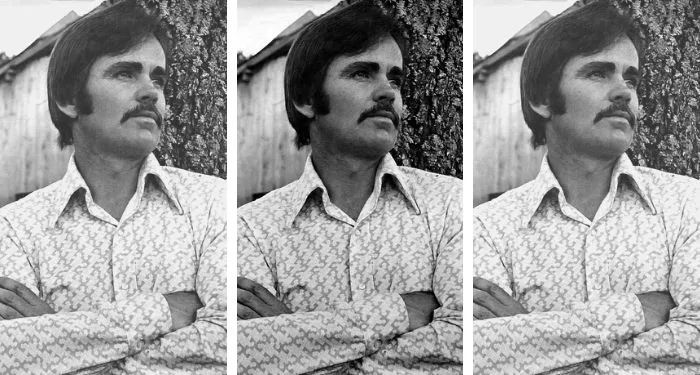


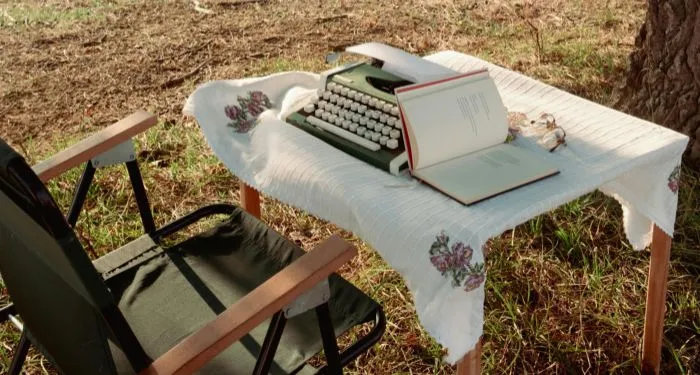
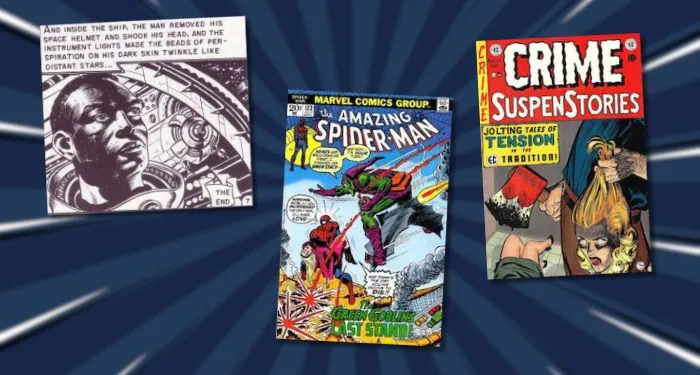
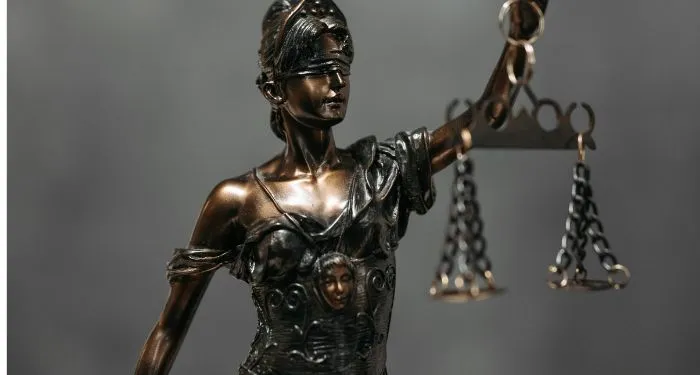

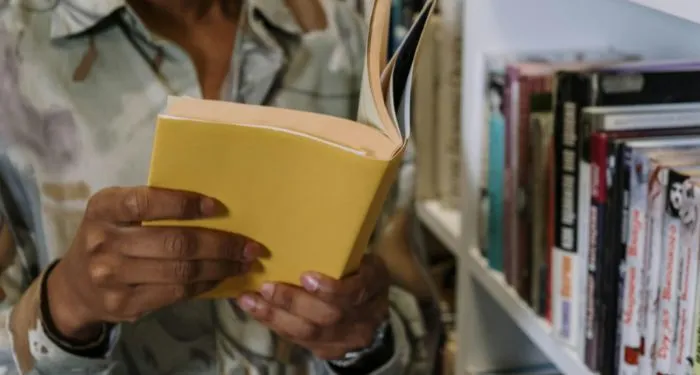
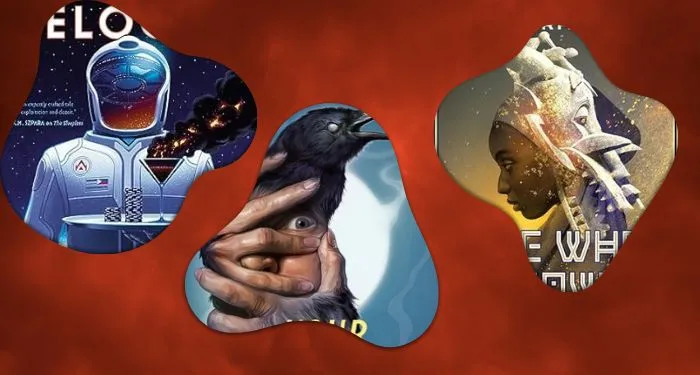
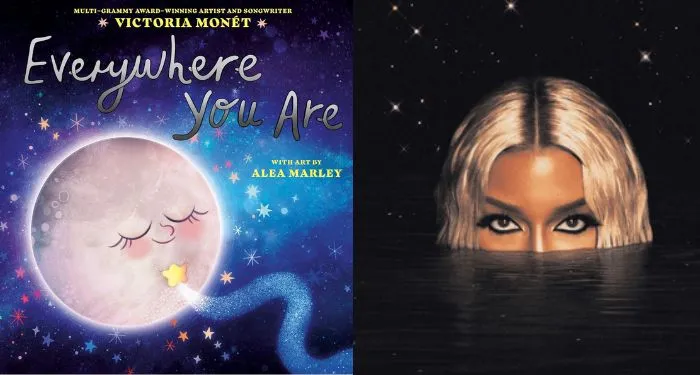


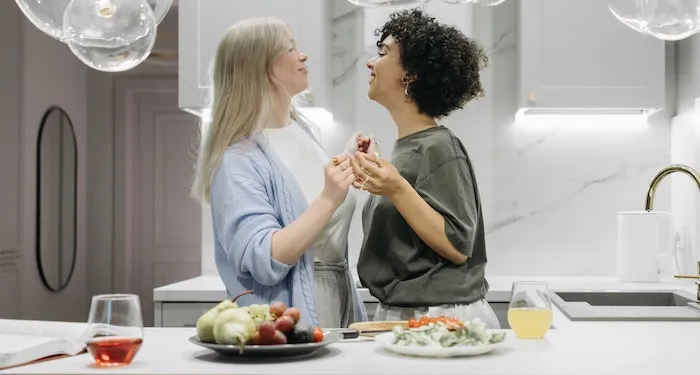

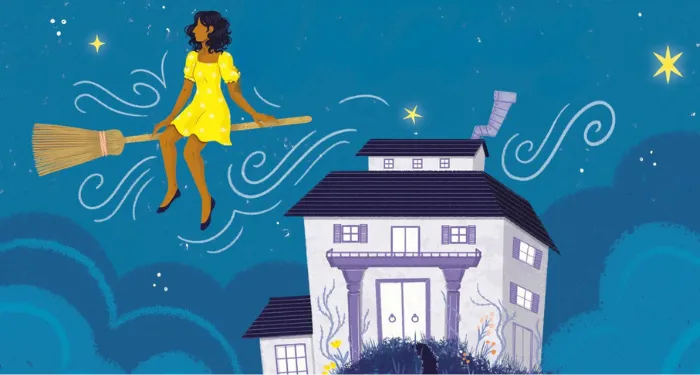



 English (US) ·
English (US) ·